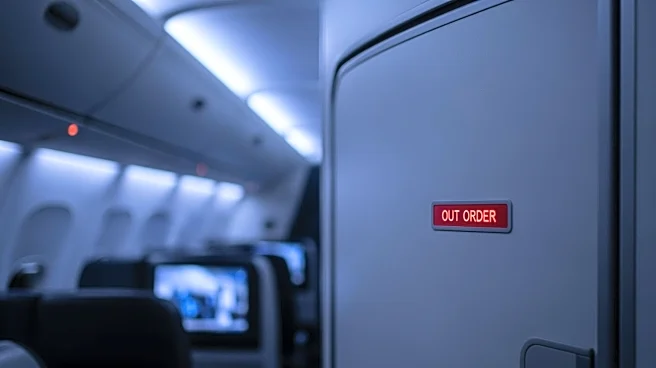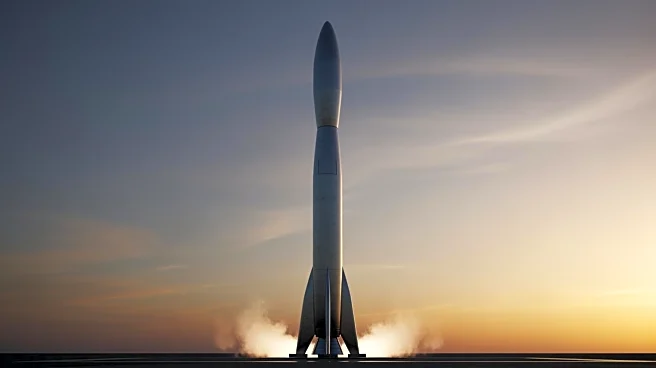Rapid Read • 8 min read
Blue Origin has postponed its 35th New Shepard mission, originally scheduled for August 23, 2025, due to an avionics issue with the booster. This mission, known as NS-35, is significant as it marks the 200th payload launch for Blue Origin, featuring experiments designed by students and educators. The mission aims to advance scientific research by carrying payloads above the Kármán line, focusing on experiments such as plant cultivation in microgravity and environmental condition assessments. The delay underscores the complexities involved in commercial spaceflight and the necessity for rigorous testing to ensure mission success.
AD
The delay of the NS-35 mission highlights the challenges faced by commercial spaceflight companies in maintaining reliability and safety. Successful payload delivery is crucial for ongoing research and development in space science, particularly for educational initiatives that inspire future generations of scientists and engineers. The mission's focus on student-designed experiments emphasizes the role of education in space exploration, potentially fostering interest and innovation in the field. The setback may prompt Blue Origin and other companies to enhance their testing protocols to prevent similar issues in future missions.
Blue Origin is expected to address the avionics issue before rescheduling the NS-35 mission. The company will likely conduct additional tests to ensure the reliability of the booster system. Stakeholders, including educational institutions involved in the payload experiments, will be closely monitoring the situation. The outcome of this mission could influence future collaborations between commercial spaceflight companies and educational entities, potentially affecting the planning and execution of similar missions.
The delay raises broader questions about the reliability of commercial spaceflight systems and their ability to support scientific research. As the industry grows, ensuring the safety and success of missions becomes increasingly important, not only for commercial interests but also for the scientific community relying on these platforms for research. The incident may lead to discussions on regulatory standards and oversight in the commercial space sector.
AD
More Stories You Might Enjoy











